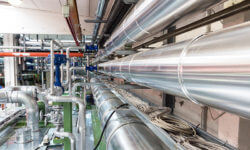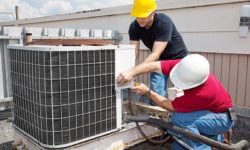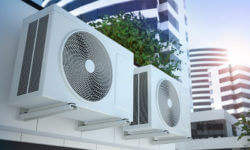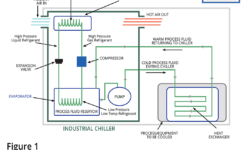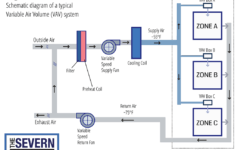When choosing an HVAC system for your business or facility, you have plenty of options. If you’re deciding between a heat pump or an air conditioner, there are a few things to consider. Both use compressed refrigerants to collect heat from your indoor space and transfer it outside. However, which system is more beneficial to your specific building? To find out, it’s important to know the difference between the two.
Read more →One common challenge that commercial properties face is proper air control, which can be solved by packaged HVAC systems. But, what’s the best way for facility managers to heat and cool a building? First, they need to consider all the HVAC systems that are available and which fits the property’s needs. For example, packaged HVAC systems are best for commercial spaces. They offer energy savings, easy maintenance, and a quieter building. Read more to learn more.
Read more →According to a study by the U.S. Department of Energy, HVAC systems are the largest users of energy in commercial buildings. That being said, the cost of running your building’s HVAC system will be among your greatest expenses, so it’s important to carefully select the components of your HVAC design.
Read more →As the world develops and grows, so does the need for proper climate control for commercial HVAC systems. New, original architectures pop up seemingly overnight, and with them comes another huge challenge. So, how are people supposed to manage climate control in uniquely-shaped and wholly different buildings, the likes of which they’ve never seen before?
Read more →Around since the late 1880s, ceiling fans have become a staple in U.S households. It was one way to make rooms more comfortable. They lost a bit of popularity in the 50s as airconditioning came to our homes. However, in the 1970s during the energy crisis, they made a comeback. To this day, they still remain in demand and a common household fixture. Yet, with technology today, what are the benefits of ceiling fans? Do we actually need them? Read on to find out.
Read more →As a commercial building owner, replacing your air conditioning system is likely not on the top of your to-do list. But, there are plenty of telltale signs that indicate when it’s time to do so. Plus, putting off the purchase of a new unit could prove to be more costly in the long run. Here’s a look at the top four reasons to replace your AC.
Read more →When choosing which HVAC system to install, it can be difficult to navigate your options. There are too many systems on the market to count. However, understanding the four major types of commercial air conditioning units may help you make an informed decision. We break down each of them below.
Read more →Owners of R-22 cooling systems in the United States will soon have to make some changes. On January 1, 2020, the production and import of R-22 refrigerant will become illegal. This is going into effect to further protect the environment and the ozone layer. But, what does this mean for your HVAC system? And what will your options be? Here’s an overview of what you should know.
Read more →Chillers do exactly what the name says – cool things down. In fact, chillers are necessary across a wide range of applications. But, how does a chiller work? In short, they prevent overheating and keep products cool to avoid harm to your machinery and bottom line. Here, we’ve broken down the elements of chillers and how they work.
Read more →Trying to decide which air zone HVAC system is right for you? There are two types to consider: VAV (variable air volume) and VVT (variable volume and temperature) HVAC systems. Overall, both systems help you cut back on utility costs compared to CAV (constant air volume) systems of years past. However, there are a few key differences that could sway your decision. To help you get a better idea, we’ve compared VAV vs VVT systems.
Read more →

